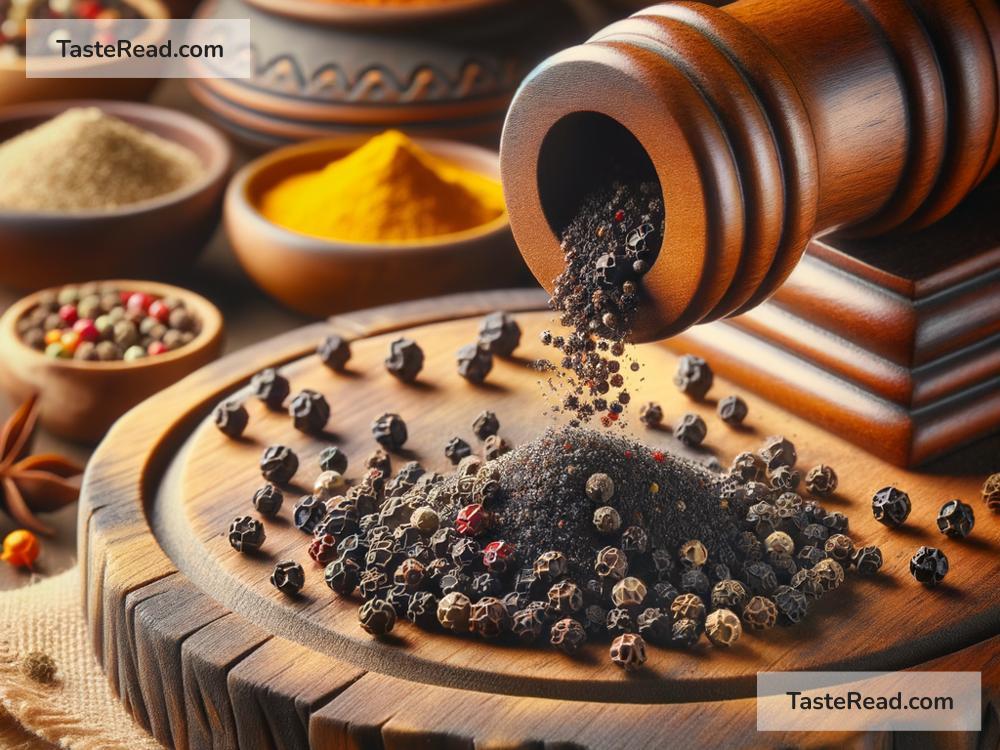Why Black Pepper Is Called the King of Spices
When we talk about spices, black pepper often comes to mind right away. It’s a staple in kitchens worldwide and has been cherished for centuries. But have you ever wondered why black pepper is called the “King of Spices”? What makes these tiny black beads so important and beloved? In this article, we’ll explore the fascinating history, uses, and value of black pepper that earned it the royal title.
A Brief History of Black Pepper
Black pepper has a long and rich history. It comes from the dried berries of the plant Piper nigrum, which is native to South India. Thousands of years ago, black pepper started its journey as a prized commodity. Ancient traders carried it from India to Europe, Africa, and beyond through the famous Spice Routes.
During the Roman Empire, black pepper was considered a luxury item. It was so valuable that it was sometimes used as currency. From Rome to medieval Europe, people treasured black pepper and used it not only to enhance the taste of their dishes but also as medicine. Its high demand made it one of the most sought-after spices in the world.
Later, black pepper played a major role in shaping history. European explorers like Vasco da Gama began their dangerous sea voyages to find a direct route to India to access spices like black pepper. In fact, the quest for spices—including black pepper—helped open up global trade and led to the discovery of new lands.
Why “King” of Spices?
So why is black pepper called the “king”? For starters, black pepper is one of the oldest and most widely used spices in the world. It was once considered more valuable than gold and was referred to as “black gold” by traders. Its universal appeal, versatility, and critical role in shaping the spice trade earned it the regal nickname.
Though there are many spices with unique flavors, black pepper’s bold, warm, and slightly spicy taste makes it a favorite. Unlike spices with niche uses, black pepper pairs with nearly every savory dish, making it incredibly versatile. Its ability to enhance flavors without overpowering them is unmatched.
Another reason for its royal title is its global accessibility. Today, black pepper is no longer a luxury reserved for kings—it’s found in homes, restaurants, and markets all around the world. Despite its popularity, it still holds an aura of importance because of its enduring history and universal appeal.
The Culinary Power of Black Pepper
Black pepper is a kitchen superstar. In cooking, it serves as both a seasoning and a flavor enhancer. You can sprinkle it on salads, add it to soups, blend it into marinades, or use it to spice up meats and vegetables. It works equally well in simple, everyday meals and gourmet dishes.
Peppercorns come in several varieties, including black, white, green, and even pink. Black peppercorns, with their pungent flavor and aroma, are the most commonly used. Ground black pepper is especially popular, but freshly cracked peppercorns often deliver an even stronger and richer taste.
Because of its versatility, black pepper is considered an essential ingredient in nearly every cuisine around the world. From Indian curries to Italian pasta sauces to French omelets, black pepper’s presence in global dishes is a testament to its universal appeal.
The Health Benefits of Black Pepper
Black pepper is more than just a spice; it’s also a health hero. Packed with vitamins, minerals, and antioxidants, black pepper offers a variety of health benefits. The main active compound in black pepper is piperine, which is responsible for its pungent taste and many medicinal properties.
For centuries, black pepper has been used in traditional medicine for digestion, colds, and even weight management. Piperine in black pepper is said to improve digestion by stimulating the production of digestive enzymes. It can also help your body absorb nutrients better when paired with other foods.
Additionally, black pepper has anti-inflammatory and antimicrobial properties, which can support overall health. Studies have shown that piperine may also have antioxidant effects, helping to prevent cell damage and protect against diseases. Black pepper’s ability to aid both flavor and health justifies its title as the king.
How Black Pepper Became a Household Staple
Today, black pepper is so common that we may take it for granted, but its journey to becoming a household staple was anything but ordinary. From its origins in South India to its role in global trade, black pepper has been part of human history for over 4,000 years. What was once a luxury available only to the wealthy is now enjoyed by everyone, no matter where you live or what you cook.
Its affordability, accessibility, and unmatched versatility mean that almost every kitchen cabinet has a jar of black pepper. Whether you’re making a simple scrambled egg or crafting a top-tier restaurant dish, black pepper is there to give your food an extra kick of flavor.
Conclusion
Black pepper’s nickname as the “King of Spices” isn’t just a title—it’s a recognition of its extraordinary value throughout history. From its role as a luxury commodity in ancient times to its presence in nearly every kitchen today, black pepper has truly earned its crown.
Its rich history, bold flavor, and variety of uses make it a spice like no other. Black pepper isn’t just a seasoning; it’s a symbol of how spices have shaped cultures, economies, and cuisines. The next time you reach for that shaker, take a moment to appreciate why black pepper deserves its royal reputation.


